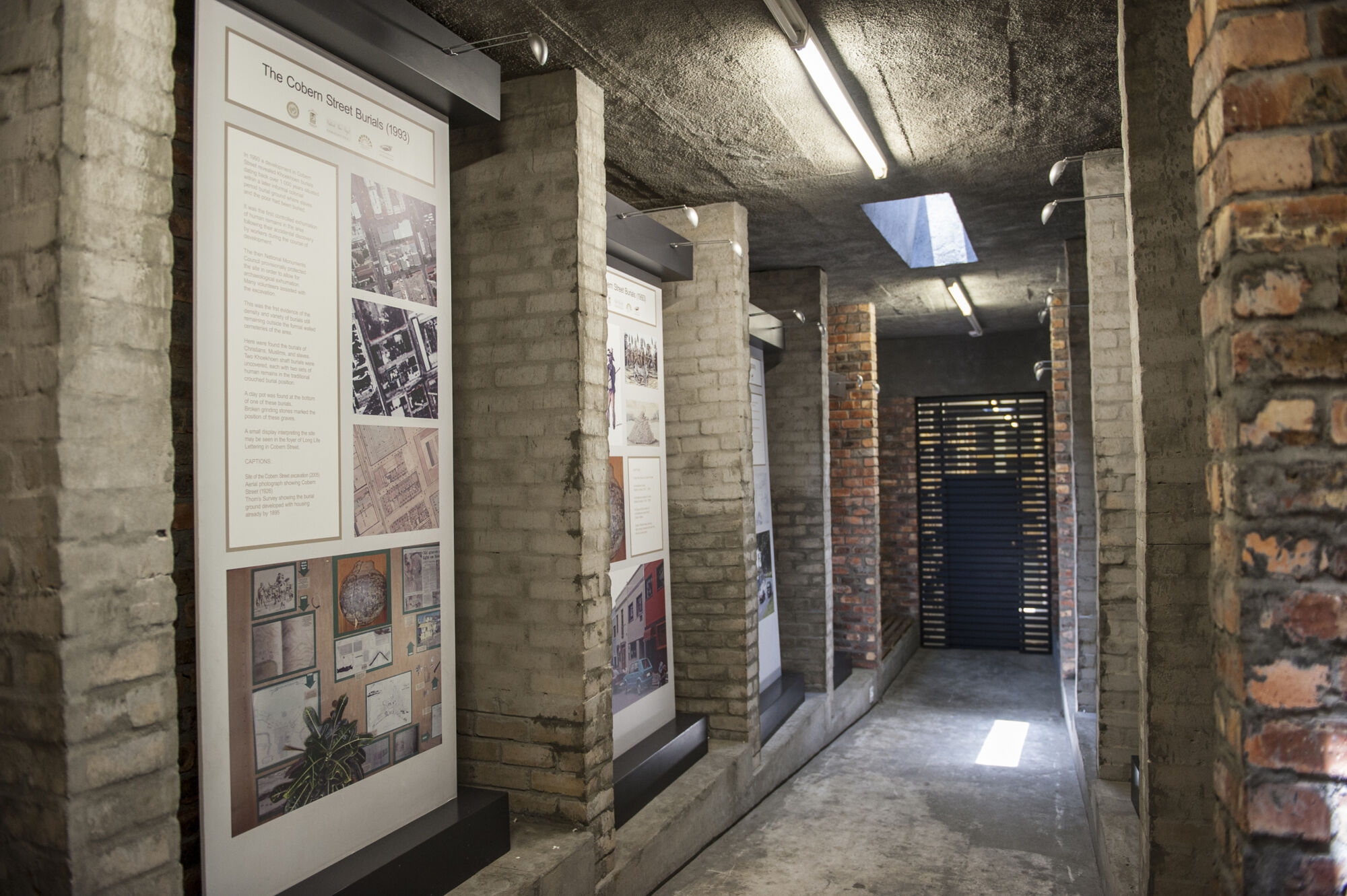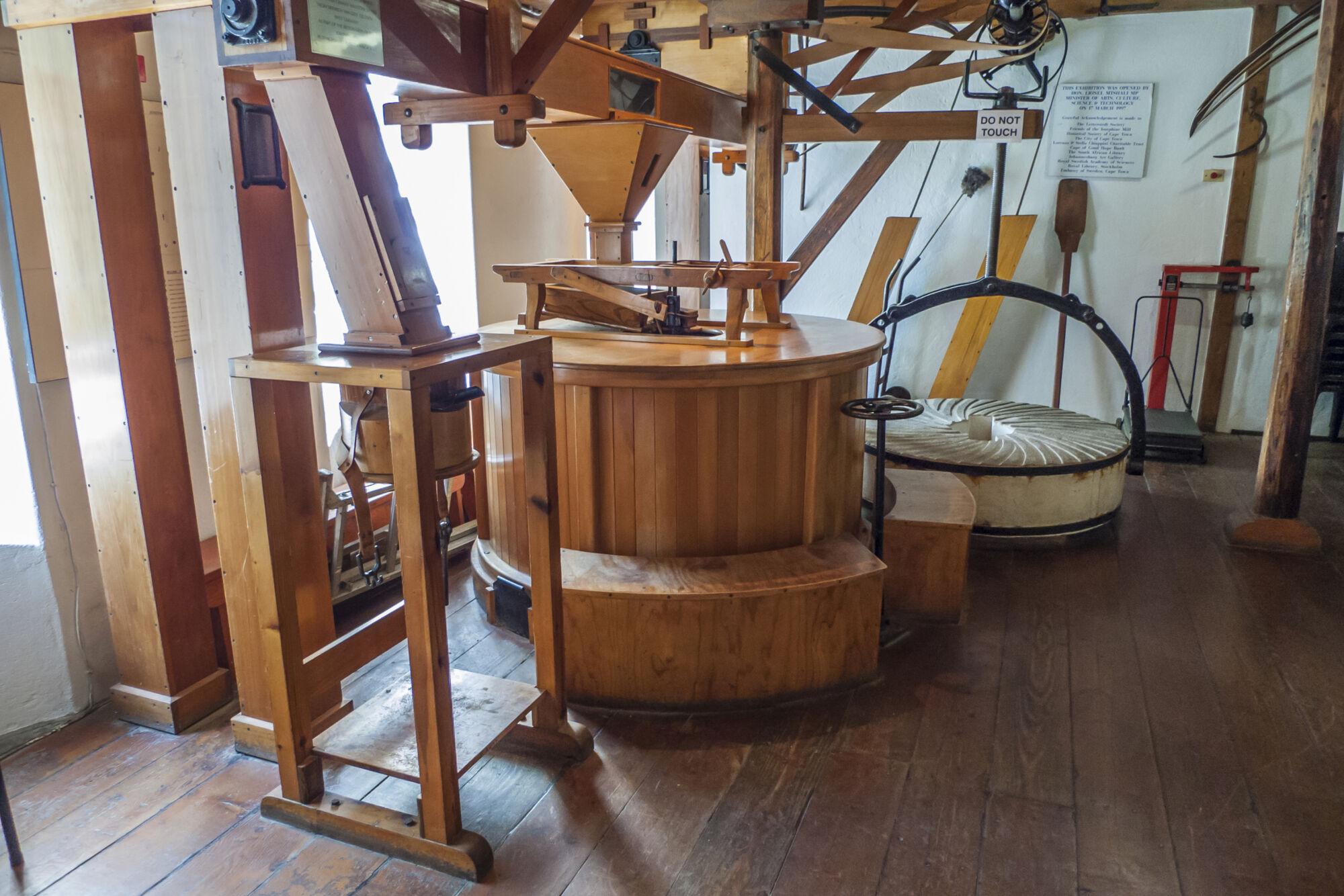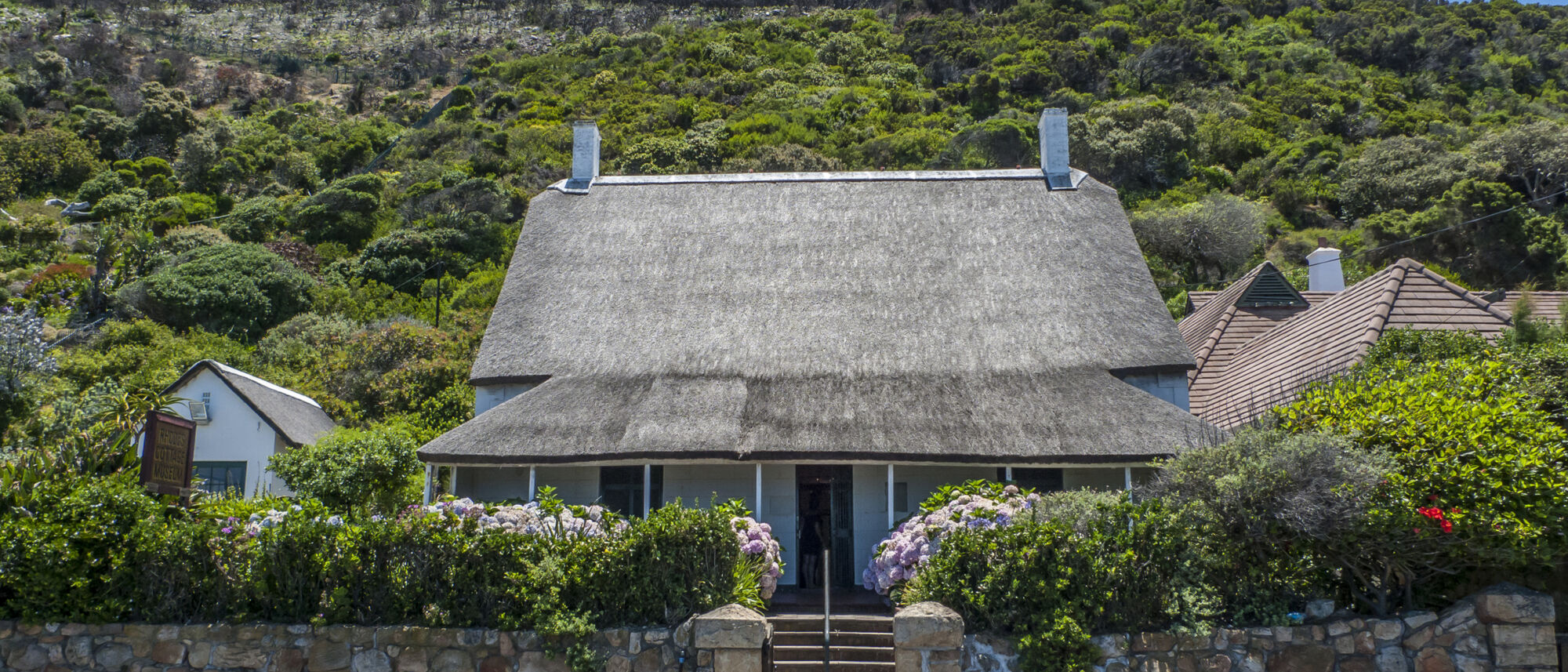Rhodes Cottage Museum
Empire builder, mining magnate, prime minister of the Cape Colony and founder of Rhodesia, Cecil John Rhodes bought this simple, three-bedroom cottage in Muizenberg in 1899. At the time, his health was already failing and he sought the rejuvenation of sea air. Rhodes preferred this home to all his other residences, including the grand Groote Schuur mansion in Rondebosch.
The room on your left as you enter is where Rhodes died of heart failure in 1902 at the age of 48. It’s a humble space with a small iron bedstead – hardly the deathbed you’d expect of one of the world’s richest and most powerful men. The rest of the house has exhibits depicting his life, including photographs, newspaper cuttings and caricatures revealing the man behind the imperial legacy. The museum is run by a group of enthusiastic volunteers.
VISIT IT: 246 Main Road, Muizenberg. Open daily 10h00–13h00. Entry R20 donation. Contact 082-908-3456
Prestwich Memorial
The Prestwich Memorial is a curious looking building with a facade of Robben Island slate set in a garden beside St Andrew’s Square in Cape Town’s CBD. It commemorates the forgotten citizens who helped build the Mother City and houses an ossuary and a number of interpretive displays, including a copy of the 360-degree panorama of Table Bay painted by Robert Gordon in 1778.
The ossuary is the final resting place of more than 2,500 people whose skeletons were exhumed from a nearby building site. The unmarked graves included everyone from slaves and washerwomen to sailors and those executed by the colonial government between the mid 18th and late 19th centuries.
VISIT IT: Corner of Somerset Road and Buitengracht Street. Open Mon–Fri 07h00–17h00, Sat–Sun 08h00–14h00. Free entry. Web http://www.theheritageportal.c...

Marvol Gallery, Hazendal Estate
Marvol is a curious and incongruous museum that houses Russian art and artefacts on an old Cape wine estate. The downstairs section displays a selection of Fabergé eggs and Russian religious icons portraying the saints, disciples, Virgin and Jesus. The upper storey is devoted to matryoshka dolls and realist paintings that depict typical Russian pastoral scenes, snow-covered landscapes and towns.
The museum is the brainchild of one of the Russian owners of Hazendal Estate, a wine farm founded in 1699. When businessman Mark Voloshin first arrived in South Africa, he was often asked about his heritage. The Marvol Museum of Russian Art and Culture is his response to that interest.
While on Hazendal, you can do some wine tasting, have a meal at the farm’s Hermitage Restaurant or enjoy a picnic on the lawns.
VISIT IT: Driving towards Stellenbosch on La Belle Road (M31), turn left onto Bottelary Road (M23) in Kuilsriver. Hazendal’s entrance is on the left after three sets of traffic lights. Open Tue–Fri, 10h00–17h00, Sat–Sun 09h00–17h00. Web https://www.hazendal.co.za/mar...
Josephine Mill
Built in 1840, this is Cape Town’s only surviving, operational watermill and forms part of a museum dedicated to the milling industry. Power was generated by an iron waterwheel, attached to the elegant Victorian building. The brick structure with its cast-iron windows is reminiscent of similar architecture in Sweden, home of the first owner, Jacob Letterstedt (the mill is named in honour of Crown Princess Josephine of Sweden).
When the building was bequeathed to the Cape Town Historical Society in 1975, it had fallen into considerable disrepair. But by 1988, restoration was complete and the iron waterwheel was turning once again, able to produce freshly milled, stone-ground flour.
The museum’s interior houses artefacts recovered from the site and has an exhibition of the stone-milling process. There are plans showing the original watercourses and pipes, and a Cornish steam boiler that was found on the banks of the Liesbeek River.
VISIT IT: 13 Boundary Road, Newlands. Free entry by appointment. Contact 083-299-6873

Bo-Kaap Museum
Dating from the 1760s, the Iziko Bo-Kaap Museum was one of the earliest houses built in this historic district of the city on the slopes of Signal Hill. The Bo-Kaap became home to many Muslims and freed slaves after the abolition of slavery. This social history museum showcases local Islamic culture and heritage, and depicts the lifestyle of a nineteenth-century Muslim family.
The façade, with its curvilinear Baroque parapet, is characteristic of early Cape Dutch architecture. The yellowwood floors and ceilings were restored, as were the teak windows, shutters and doors. The museum boasts fine 19th-century furnishings, including a Cape drop-leaf dining table, Cape Regency-style chairs and a bridal chamber decorated to match the bride’s dress.
The house was declared a National Monument in 1965, restored in the 1970s and the museum was opened in 1978 as a satellite of the SA Cultural History Museum.
VISIT IT: 71 Wale Street, Bo-Kaap. Open 10h00–14h30, Mon–Sat. Entrance R20. Web https://www.iziko.org.za/museums/bo-kaap-museum
Heart of Cape Town Museum
This fascinating medical museum is housed in the old Charles Saint Theatre, the operating rooms of Groot Schuur Hospital where the world’s first heart transplant took place. It honours all members of Dr Christiaan Barnard’s team and tells the backstories of both the donor, Denise Darvall, and the patient, Louis Washkansky, who received the heart.
The museum was inaugurated on 3 December 2007, marking the 40th anniversary of the heart transplant. A two-hour guided tour starts with the car accident that provided the heart for the transplant, through to the animal lab where Barnard conducted experiments on more than 50 dogs to perfect the technique of heart transplantation and finally a recreation of the surgery itself. Visitors also get to see a re-creation of Louis Washkansky’s recovery room … after which they can, if they wish, register as organ donors.
VISIT IT: Groote Schuur Hospital, Observatory. Mon–Sat, tours every 2 hours (on the hour). Tel 021-404-1967
Het Posthuys Museum
This quaint thatched building was erected in 1673 by the Dutch East India Company and used as a signal station and military observation post to warn the colony of attack from the sea. It is believed to be the oldest, extant settler building in South Africa. During the Battle of Muizenberg in 1795, the Posthuys received a direct, cannon-ball hit on its stoep.
The Anglo-American Corporation, together with historians, archaeologists and architects, began its restoration in 1979. The work involved returning the Posthuys to its 17th-century appearance as a single-storey dwelling. All later additions were removed, a thatch roof and brandsolder (fireproof ceiling) were reinstated, shell-lime floors laid, stone steps rebuilt, and new doors, casement windows and shutters installed.
The museum focuses on the Battle of Muizenberg and Khoi history, and is run by enthusiastic volunteers.
VISIT IT: 182 Main Road, Muizenberg. Open 10h00–13h00, Fridays and Saturdays. Donation R30. Contact 082-908-3456
Heritage Museum
This quaint museum, dedicated to Muslim culture and forced removals, is one of Cape Town’s more characterful institutions. It lies in the heart of Simon’s Town and occupies the ground floor of Amlay House, built in 1858. The building belonged to the Amlay family until they were forcibly removed after the town was declared a ‘white area’ under the Group Areas Act. They were among the first to return in 1995 and created a heritage museum as a reminder of the long trajectory of Muslim culture in the area.
Displays include old photographs and family trees, a bridal room and handwritten kitab books. There are exhibits depicting aspects of Islamic culture at the Cape, including kramats (holy burial sites), religious artefacts and a pilgrimage room with hajj attire. The forced removals are also represented, bearing witness to the trauma of that dark period of our history.
VISIT IT: King George Way. Daily (except Friday) 10am–12pm or by appointment. Contact 021-786-2302. CURRENTLY CLOSED DUE TO COVID-19

















